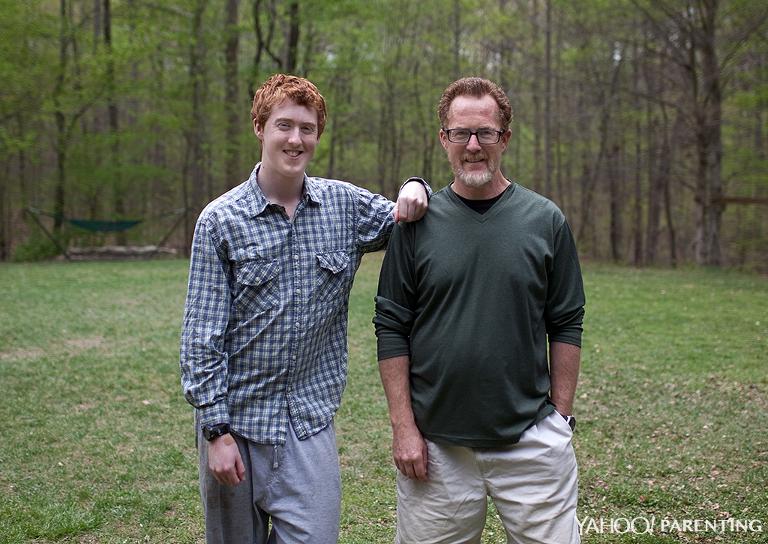Jessica Bennett talks back to Roberts regarding her Newsweek poly article, and other developments.
Remember Jessica Bennett? She wrote the famous and much-quoted Newsweek online feature six years ago about poly shaping up as America's next big development in relationships.
John Roberts cited my article in his dissent on marriage equality. He missed the point.
I dissent, Mr. Chief Justice!
By Jessica Bennett
...So it was almost comical to see my work used against [the gay marriage] cause last week by the Supreme Court of the United States. In his dissent in the court’s gay marriage ruling, Chief Justice John Roberts cited my 2009 article for Newsweek: “Polyamory: The Next Sexual Revolution?”.
This was not an article about the LGBT community at all. Rather, it was about a group, polyamorists, from whom gay rights activists have long attempted to distance themselves specifically to avoid the kind of association Roberts drew.
...I had spent time shadowing a polyamorous family in my hometown, Seattle.... This particular family was a triad: that is, a woman at the center, two men as her partners, living under one roof, with a married couple on the side, the wife of whom was dating one of the two men and the husband dating the woman at the center. They lived in a lakeside community full of good Seattle liberals and lots of money; they had three dogs and a vegetable garden and they often took walks along the water, hand in hand in hand.
...What they weren’t looking to do at all, though, was to “redefine marriage” — as gay marriage critics have so often put it. They were looking to break the shackles of the institution altogether. “The people I feel sorry for are the ones who don’t ever realize they have any other choices beyond the traditional options society presents,” one poly man told me.
I’d gone in a skeptic, but emerged with a set of characters who raised convincing philosophical, and even biological, questions about relationships, jealousy, tradition and institutions — and whether humans were meant to be monogamous in the first place. It had occurred to me that the case for polyamory on the pages of a national magazine might ruffle feathers; it was low-hanging fruit for conservatives who would argue, like Roberts, that polyamory was another milestone on the slippery slope toward… social breakdown, chaos, sexual deviance, you name it. But as part of the argument against one of the most significant rulings of the last 50 years? Next to a New York Post citation?! It was hilarious — but only because it was on the losing side of a close vote.
“If not having the opportunity to marry ‘serves to disrespect and subordinate’ gay and lesbian couples, why wouldn’t the same ‘imposition of this disability,’ … serve to disrespect and subordinate people who find fulfillment in polyamorous relationships?” the chief justice wrote in his 29-page dissent. “I do not mean to equate marriage between same-sex couples with plural marriages in all respects. There may well be relevant differences that compel different legal analysis. But if there are, petitioners have not pointed to any.”
At the Supreme Court, apparently, authorial intent only carries so much weight. No one involved in my Newsweek story — not the subjects, and certainly not the writer — thought there was any wider lesson to be drawn from their situation about the state of gay marriage. But don’t tell that to a chief justice (or his law clerk) hell-bent on finding grave concerns about what might happen if two people of the same sex get married.
In this case, fortunately, love still wins.
Read her whole article (June 29, 2015).
-------------------------------------------
More in today:
● At The Federalist, Sara Burroughs writes Polyamory Is Next, And I’m One Reason Why (June 30, 2015). Amid the personal story of her and her partner's journey into poly is this perspective:
Here's how libertarianism has led me and my partner into polyamory, and why America will have to grapple with this issue next.
By Sara Burrows
...The first authority I came to see as illegitimate was government, shortly after discovering Ron Paul in 2008. I stumbled upon his campaign like a rabbit hole that led me to question all of society’s rules. Soon after, I started to question my religion — Christianity. How much of it had been made up, twisted, and contrived — in collusion with the government — to support the powers that be?
Along with the fear of God, I cast off any respect for parental authority I once had. Since the punitive, authoritarian man in the clouds was no longer real to me, who was to say children should obey their parents? I educated myself about peaceful parenting and became determined to treat my daughter as a free, autonomous person with inalienable rights, not as my property.
Gay Marriage Deepens Romantic Inequality
Government incentives for marriage — gay or straight — discriminate against single and polyamorous individuals. Part of the reason gay people are so exuberant about the Supreme Court’s legalization of same-sex marriage — aside from the symbolism of wider cultural acceptance — is the bribes government gives people for committing to a lifetime of coupled monogamy.
From income-tax breaks to estate planning benefits to Social Security and insurance benefits to the right to make medical decisions for one’s spouse, there are all kinds of carrots dangled in front of Americans as rewards for getting hitched. Instead of putting unmarried individuals on equal footing with married people, the government has chosen to appease the masses by blessing another category of monogamous couples with the privileges of marriage—those of the same sex.
This is discrimination, plain and simple. It discriminates against single people who have no formal romantic relationships and a growing number of people who identify as polyamorous, who maintain multiple romantic relationships at once. The government has no business incentivizing any type of romantic or non-romantic behavior. It has no business rewarding us or penalizing us based on our relationship status.
By granting gay couples the same “privileges” as straight couples, we are widening the gap of inequality between coupled and non-coupled individuals...
Sara is a former reporter for The Carolina Journal in Raleigh, North Carolina. She and her partner, Brad, are now raising their daughter together in Asheville, North Carolina, where they’ve started The Real Food Truck. In her spare time, she blogs about their new journey into polyamory at polyamorydiaries.com.
As you might expect, The Federalist prints a rebuttal, Polyamory Is Bad For Kids, Polyamorists, And Society (by D. C. McAllister, July 7). She misquotes Deborah Anapol's Polyamory in the 21st Century to the effect that poly is all horse manure all the time, rather than a string of disappointments for some too-eager newbies who can't make it work.
-------------------------------------------
● A friendly piece by a staffer at Religion News Service: #LoveWins for gay couples, but for polygamy activists, the fight continues (June 30, 2015). About Roberts' dissent, Brian Pellot writes that it raises
Good, progressive questions from a man playing devil’s advocate while inadvertently advancing pro-poly rhetoric that will likely come back to bite him. Dissenting Justices Alito and Scalia asked similar poly-affirming questions during oral arguments in the case.
The fight for LGBTQ+ rights in America is far from over, but after last week’s major win, it’s worth properly reflecting on the important questions Roberts and his fellow dissenters have raised about polygamy (briefly setting aside their fear mongering motives in doing so)....
So is polygamy passé? [Is it] the next slide on our slippery slope to damnation? [Or] the next rung on our steep climb towards full civil rights and equality in America?
Whatever your take, there’s no denying that last week’s SCOTUS opinions broke our collective silence on poly rights. If Friday’s ruling was about dignity and equality, as Justice Kennedy made clear, this is a debate we must continue.
In my next post: the return of Slate's poly-dismissive William Saletan.
[Permalink]
Labels: Supreme Court: Obergefell




